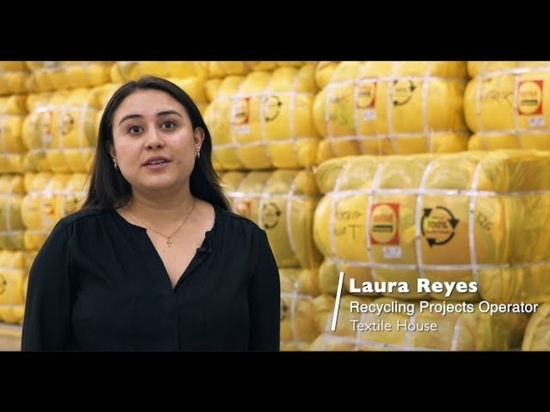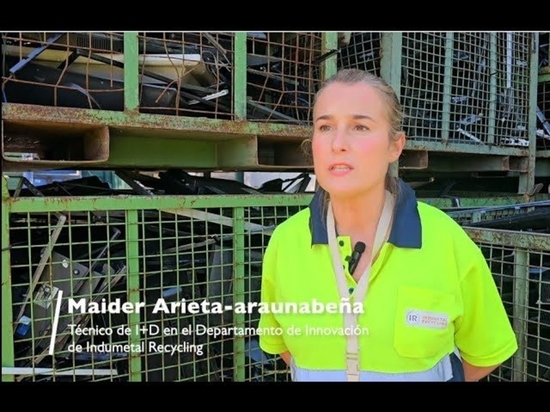
#Product Trends
RECYCLING IN SPAIN: ACHIEVEMENTS, CHALLENGES, AND INNOVATIVE TECHNOLOGICAL SOLUTIONS
RECYCLING IN SPAIN: ACHIEVEMENTS, CHALLENGES, AND INNOVATIVE TECHNOLOGICAL SOLUTIONS
RECYCLING IN SPAIN: ACHIEVEMENTS, CHALLENGES, AND INNOVATIVE TECHNOLOGICAL SOLUTIONS
THE CURRENT STATE OF RECYCLING IN SPAIN
In Spain, recycling has experienced steady growth in recent years, with a particularly noteworthy improvement in the recycling of plastic waste. However, it still faces significant challenges, such as landfill dependence and lack of uniformity in local recycling systems.
The progress of recycling in Spain follows the guidelines set by the European Commission, which has recently launched a set of measures focused on the sustainable use of key natural resources, which has direct implications for the recycling industry.
Europe’s strategy encompasses initiatives to improve resource use efficiency and to promote collection and recycling, aligning with the European Green Deal and the Sustainable Development Goals.
This comprehensive approach represents a significant step towards the consolidation of a circular economy in Europe, and highlights the need for greater collaboration and coordination among member states, including Spain.
The international scene, as we have already highlighted in previous articles, underscores the importance of promoting all initiatives, technologies, and innovations that contribute to improving selective collection, effective identification of the different materials that make up waste, waste valorization systems, and, above all, recycling systems and plants.
OUTSTANDING ISSUES FOR SPAIN IN THE FIELD OF RECYCLING
One of the biggest challenges that Spain is currently facing is to meet the European Union’s recycling targets for 2025.
The Foundation for the Circular Economy has identified the lack of infrastructure, the complexity of local recycling systems, and compliance with European regulations as the most notable obstacles.
The “Anticipa” initiative is an example of how Spain is working to confidently address these challenges.
The “Anticipa” initiative is a coordinated effort aimed at accelerating the achievement of recycling targets in Spain, in line with the goals set by the European Union. It is a project focused on anticipating and addressing challenges related to infrastructure, policies, and recycling practices throughout the territory.
With a comprehensive strategy that spans from public awareness to technological modernization, “Anticipa” aims to establish a sustainable and efficient framework for waste management.
Collaboration between government agencies, private companies, and non-profit organizations is the cornerstone of this initiative, aiming to create synergy that allows Spain to reach and exceed recycling targets, thus contributing to a greener and more sustainable future.
COMPARISON OF SPAIN WITH OTHER EUROPEAN COUNTRIES IN TERMS OF RECYCLING
Despite being the second country in Europe that recycles the most plastic, Spain still has a long way to go compared to other European countries. The effectiveness in waste management varies in each region, resulting in a lack of uniformity in recycling standards.
A promising innovation in waste management is valorization, which focuses on using waste that would normally end up in landfills as an energy source.
The cement industry in Spain has been a pioneer in this approach, using waste as a substitute for fossil fuels in the production of cement.
This practice not only reduces the amount of waste that ends up in landfills, but also contributes to the reduction of dependence on non-renewable resources and supports a circular economy.
Source: Cement and Environment Labour Foundation (CEMA). 2022 Report on the energy substitution of the cement industry in Europe 2004-2021.
THE CHALLENGE OF REDUCING THE LARGE AMOUNT OF WASTE THAT ENDS UP IN LANDFILLS
In 2019, Spain generated 21.5 million tons of urban waste, of which 12.3 million ended up in landfills. This not only represents a loss of resources but also an environmental and health challenge.
The volume of waste ending up in landfills continues to increase. And, despite the fact that lines of work such as valorization represent an important step towards sustainable waste management, the need for innovation in the recycling industry becomes more evident every day, especially for recycling waste from sectors such as construction or the textile industry.
DIFFERENT TYPES OF WASTE REQUIRE APPROPRIATE TECHNOLOGIES FOR EACH OF THEM
Textile recycling, in particular, requires specific technologies due to the variety of fibers and the lack of standardization in labeling. In this field, PICVISA offers solutions such as ECOSORT and ECOPICK, designed specifically to address the complex specificities of waste generated by an industry as important to the economy as textiles.
PICVISA’s automated separation technology uses techniques such as optical sensors and artificial intelligence-based robotics to sort and recycle textile materials.
As for the construction sector, at PICVISA, we apply a fusion of NIR (near infrared) and RGB (red, green, and blue) technology to perfect waste recovery systems in the sector.
We create customizable robots that can be trained according to the specific demands of the client, or alternatively, we provide optical separation solutions.
These innovative technologies significantly improve the efficiency in sorting recyclable materials originated in the construction sector. To achieve this, we implement practices such as selective demolition and segmentation of various waste fractions.
PICVISA’S TECHNOLOGICAL RESPONSE CONTRIBUTES TO THE MODERNIZATION OF RECYCLING IN SPAIN
Recycling in Spain presents a multifaceted scenario, with many bodies involved at municipal, regional, and national levels, which requires a coordinated technological and regulatory approach.
PICVISA’s contribution to recycling in Spain focuses on innovation and technology. The use of artificial intelligence, robotics, and optical sorting techniques has marked a turning point in the way waste is managed, identified, and treated.
OPTICAL SORTING is a clear example of how technology can overcome current challenges.
Investment in developing advanced and effective technology, as well as collaboration with the broad ecosystem of stakeholders, is key to building a sustainable future.





